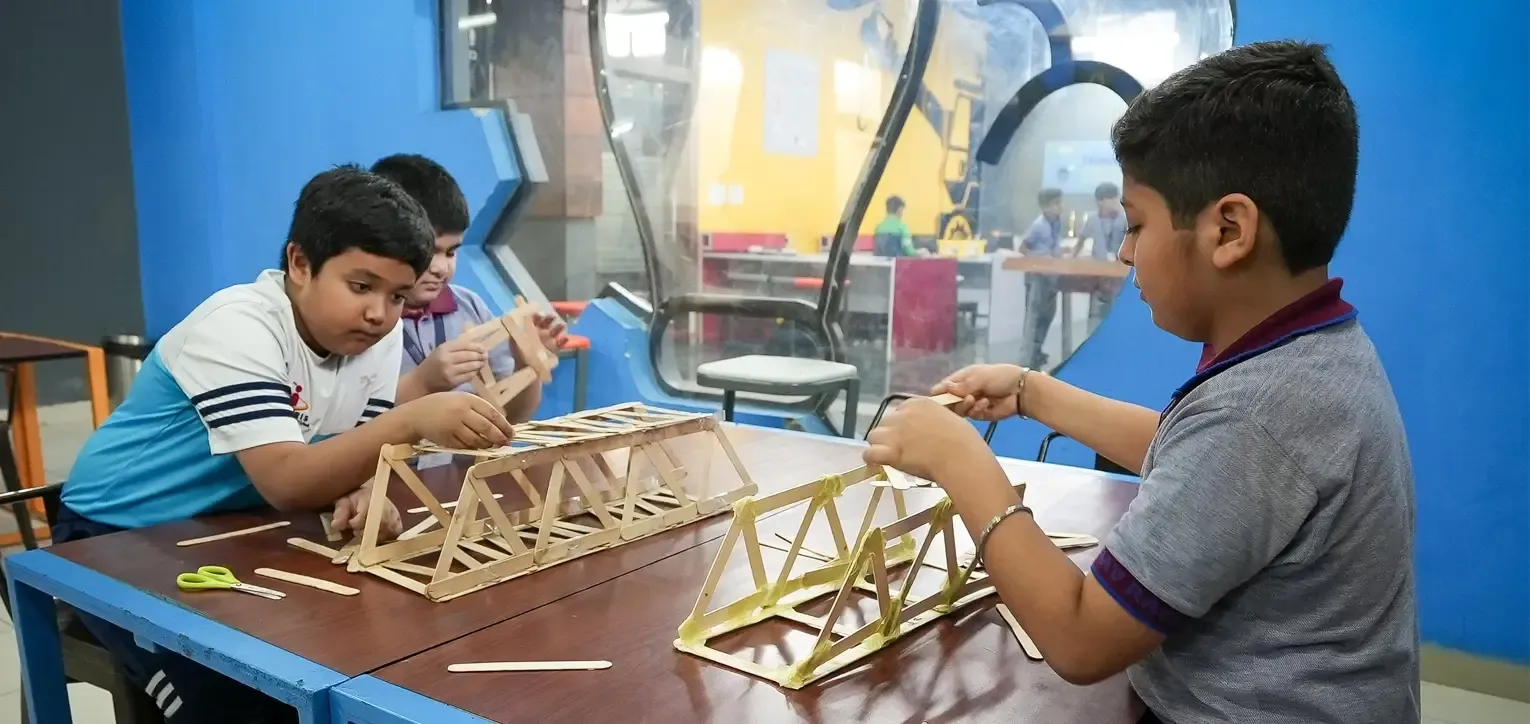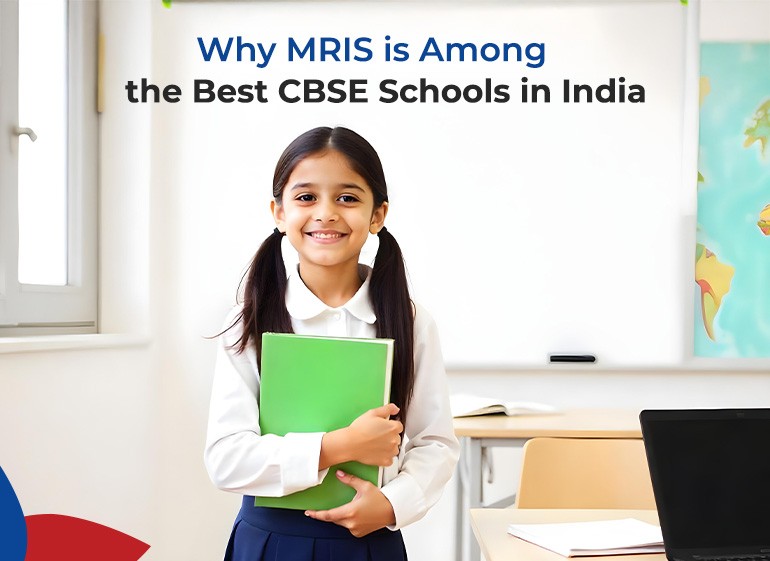Education is a platform on which mainly young generations are trained, to groom and make them future-ready. Education provides knowledge that helps a person to be up skilled and employable to run his/her life. The Indian education system is very popular and diversified as compared to other countries’ education systems due to its evolution from ancient to modern. During the ancient and medieval periods of education, students were majorly home-schooled or sent to viharas so that they could survive that era. After independence, there has been tremendous growth in the Indian education system, taking learning to a new platform. However, to satisfy the global demands of the market, new curricula were needed. This blog post by the Director Principal of Manav Rachna International School, Sector 14, Ms. Mamta Wadhwa focuses on teaching methodology, curriculum, characteristics, methods of learning, and aims of the Indian education system~Editor How are Indian School Curricula beneficial to students? The Indian School education system is the 11th largest in the world, with more than 100 million students enrolled in thousands of colleges and universities. India has made strides in ameliorating literacy rates and bolstering access to primary and secondary education across top cities and towns in the country. The history of education in India dates back thousands of years to ancient India. Some of the earliest known formal educational institutions date back to the Vedic period in India (1700-1300 BC). The Vedas, the oldest scriptures of Hinduism, had an embedded education system, with texts that students memorized for ages. Education was imparted on the basis of what each student chose to specialize in, according to their interests, abilities, and understanding. Let me tell you, there is no secret that education in India has been, for decades, focused on rote learning, and memorizing facts. It is encouraging that there are now formal policies and educational grassroots movements in India, calling for radical change, so education can serve learners, teachers, and the communities, better. The national curriculum for schooling, childhood development care, training, educational practice, and adult education is now formed by the federal government. The school curriculum is facing a change after many years and will regulate the construction of courses and materials. The Indian education system has evolved astoundingly over the years. The Indian School system has changed from a traditional and rote-based learning system to a more modern and innovative learning system. We shall study the freshly structured school curriculum in this blog and how Indian School Curricula are beneficial for students. The national curriculum includes part of the national education policy 2020 as well. Let us have a glimpse of the same: The NEP pays homage to ancient scholars including Aryabhata, Bhaskar Acharya, Chanakya, Panini, and Patanjali. Value-based education includes the development of humanistic, ethical, constitutional, and universal human values of: The goal of national curricula and philosophy is to provide students with capacity-building by training them with crucial 21st-century skills, reducing course materials to emphasize indispensable active learning, and putting a greater emphasis on discovery learning. Learners will have more options and freedom. There will be no sharp distinctions between the academic fields, participating in different activities, or diverse educational tracks. The modern curriculum comprises a holistic learning approach and doesn’t just limit itself to the core subjects. Schools now tend to focus more on acquiring skills in technology, communication, critical thinking, and problem-solving. There is also enough emphasis on cultural studies and society. These aspects help children understand the problems that many communities face and they get an idea as to how they can use their knowledge for the betterment of the same. There is also an equal emphasis on extracurricular activities and co-curricular activities to help build a student’s personality and work upon his elemental strengths. Central Board of Secondary Education The Central Board of Secondary Education (CBSE) is a National-Level Board of Education in India for public and private schools, controlled and managed by the Government of India. The purpose of the policies of NEP 2020 is to develop good human beings capable of rational thought and action, possessing compassion and empathy, courage and resilience, scientific temper, and creative imagination, with sound ethical values. It aims at producing engaged, productive, and contributing citizens for building an equitable, inclusive, and plural society as envisaged by our Constitution. One of the highlights of the NEP is the implementation of open elective programs in that students are allowed to choose from disciplines other than those they are majoring in. That is, a B.Sc. student can opt for a program in Arts and Commerce and vice-versa. Council for the Indian School Certificate Examinations The CISCE is committed to serving the nation’s children, through high-quality educational endeavours, empowering them to contribute towards a humane, just and pluralistic society, and promoting introspective living, by creating exciting learning opportunities, with a commitment to excellence. They believe in catering to the needs of the children, giving them the freedom to experiment with new ideas and practices, diversity, and plurality – the basic strength for the evolution of ideas. Under this exceptional curriculum, the schools motivate students towards the cultivation of- Excellence, Values, and Spiritual and cultural experience. Schools tend to have an ‘Indian Ethos’, strong roots in the national psyche, and be sensitive to national aspirations. Cambridge Advanced Cambridge Advanced is typically for learners aged 16 to 19 years who need advanced study to prepare for university and higher education. They help learners develop independent study skills that universities value highly. The Board has an International Curriculum and is more suitable to the needs of people who are looking to relocate abroad in the future. Cambridge offers a wide choice of subjects. The program allows students to choose from a diverse variety of subjects or study areas in order to either specialize in one field or study different areas altogether. International Baccalaureate IB or the International Baccalaureate curriculum offers a rigorous, consistent high school curriculum for the children of globally mobile families. It is an international curriculum in India as it is adopted by a majority of schools abroad. The curriculum induces creativity, action, and service (CAS) and encourages outside-the-classroom learning too. This balance helps a student to become emotionally, physically, intellectually, and ethically balanced. IB stands by its motto of ‘Learn to understand.’ The IB board is more arduous and demanding, as the students are assessed all year round. Quizzes, essays, portfolios, and assignments are used to evaluate students, and there is a heavy focus on internal assessment, keeping the students on their feet throughout the year. IB learning strategy is based on real-world situations which not only makes it more interesting but also helps children understand the relevance of what they are learning. Through the IB, students are given a unique education that helps them develop strong academic, social, and emotional characteristics. As a result, students become very well-rounded, with an increased understanding of different languages, cultures, and globally significant ideas and issues. To meet the growing need of creating globally aware students, Manav Rachna institution is pursuing authorization as an IB World school. IB World Schools share a common philosophy, i.e., a commitment to high-quality, challenging, and international education – that we believe is important for our students. The aim of all IB programs is to develop internationally minded people who, recognizing their common humanity and shared guardianship of the planet, help to create a better and more peaceful world as the students would then strive to be the next: INQUIRERS They will nurture their curiosity, and develop skills for inquiry and research. They would know how to learn independently and with others. They will learn with enthusiasm and sustain their innate love of learning throughout life. KNOWLEDGEABLE THINKERS They will use critical and creative thinking skills to analyze and take action on complex problems. They will also be able to take reasoned and ethical decisions. COMMUNICATORS They will express themselves confidently and creatively in more than one language and in many ways. They will collaborate effectively, and listen carefully to the perspectives of other individuals and groups. OPEN – MINDED Students will critically appreciate their own cultures and personal histories, as well as the values and traditions of others. They would seek and evaluate a range of points of view, and they will be willing to grow from their experience. CARING Students will definitely showcase empathy, compassion, and respect. They have a commitment to service, and we act to make a positive difference in the lives of others and in the world around us. Through multiple curricula, the prime goal is to provide students with an education that nurtures all aspects of their development and prepares them to confidently take on the challenges of living in a diverse society that is constantly in flux. Giving students access to multiple curricula allows them the freedom and flexibility to explore their interests across subject areas, set high goals, and find the approach that best addresses their learning needs. Providing an Indian national framework alongside international curricula meets students where they are and ensures rigorous, engaging study in a supportive environment, no matter which approach they choose. In my analysis of the different Education Boards in India, I would like to mention that while choosing the right board is pertinent; it boils down to the actual school and its interest level in tutoring the child rather than the syllabus itself. One school of thought is to choose a school or Board for life while another is to shift based on the needs of the child. This will offer standardization of more traditional curriculum in earlier classes, the solidness acceptability of the most popular International curriculum, and the flexibility and breadth in the senior classes. India already has the world’s largest higher education system with over 1000 universities and its presence in the global education arena will ensure that it reaches newer heights, making education in India one of the best things for its school-going children and its youth population. “The aim of education is the knowledge, not of facts, but of values.” William S. Burroughs Author: Ms Mamta Wadhwa, Director Principal, Manav Rachna International School, Sector 14 Faridabad.Empowering Education – MRIS Way!




They will develop and use conceptual understanding, exploring knowledge across a range of disciplines. They will then engage with issues and ideas that have local or global significance.



